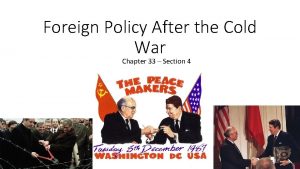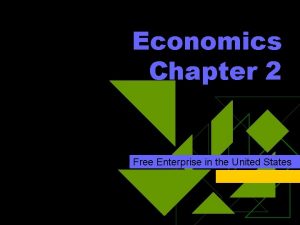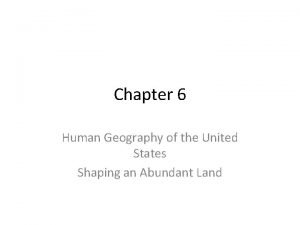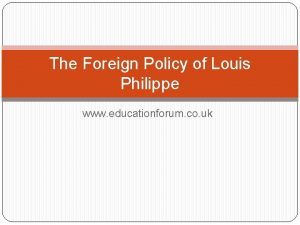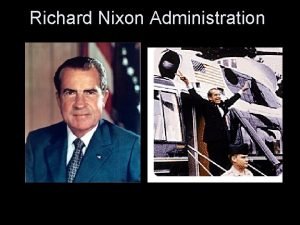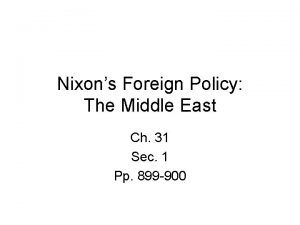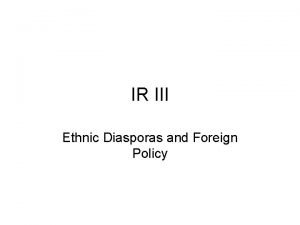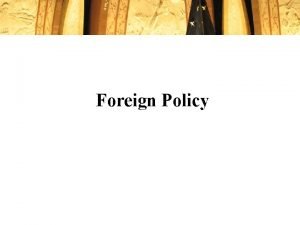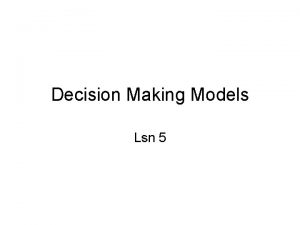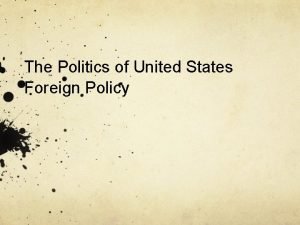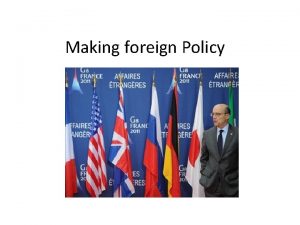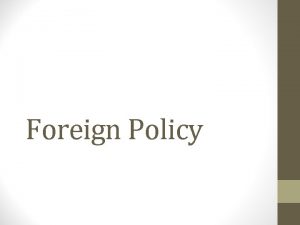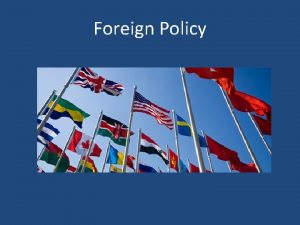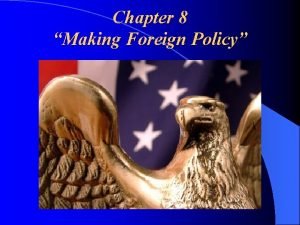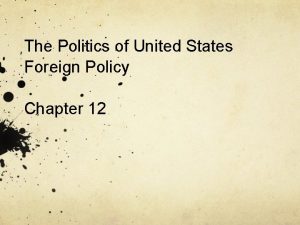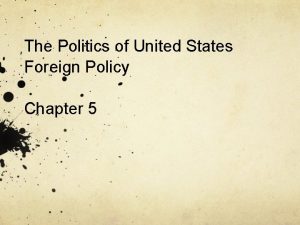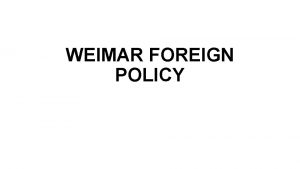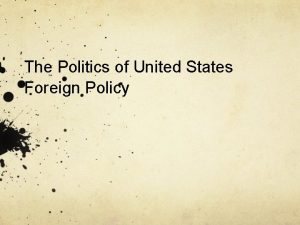The Politics of United States Foreign Policy Chapter












- Slides: 12

The Politics of United States Foreign Policy Chapter 13

Group Politics Interest groups Social movements Think Tanks

Group Life Cycles Early life Later life Survival and success: Political instability effects Insider/outsider effects Issue salience effects

Group Influence Lobbying Influencing agendas, public opinion and elections Consultation Recruitment Visibility/activities

Strategies of Group Influence Direct – inside Indirect – outside Access to power Coalition building Technocrat Grassroots mobilization

Phases of Group Politics: The Cold War Patterns Types of groups: anticommunist National security and public policy Veterans and military support Public and civic groups Businesses and corporations Labor unions Religious groups Ethnic groups Results: direct and indirect

The Cold War and Military-Industrial. Scientific Infrastructure Military establishment Industry Congress Academia

The Cold War and the Foreign Policy Establishment Shared history Focus on anticommunism Commitment to global leadership Preference for the political center Work under the radar

1960 s: The Rise of Movements Left Civil Rights Violent, nonviolent Anti-war Right Neoconservatism Christian right

Phases of Group Politics: Post-Vietnam Collapse of the foreign policy establishment Proliferation of groups, diversity and activism Pervasive military-industrial-scientific infrastructure

Post-Cold War Military-Industrial. Scientific Infrastructure Continuation of roles: military, industry, congress and academia 70 s-80 s: challenged Downsizing Post-9/11 renewal

Think Tanks over past 20 years think tanks have become influential actors in foreign policy realm are research organizations with primary purpose as public policy research and influence policy debate important because all research done is meant to influence policy, channel views directly and attuned to daily shifts in political interests what do they do? think, write and publish advocate particular policy positions define issues, set agendas and stake out different policy positions do a lot of government thinking for them Problems private organization with no public oversight groupthink
 Chapter 33 section 4 foreign policy after the cold war
Chapter 33 section 4 foreign policy after the cold war So here you are too foreign for home
So here you are too foreign for home Chapter 2 free enterprise in the united states
Chapter 2 free enterprise in the united states Chapter 6 human geography of the united states
Chapter 6 human geography of the united states Chapter 5 lesson 1 physical geography of the united states
Chapter 5 lesson 1 physical geography of the united states 1790 foreign policy
1790 foreign policy Foreign policy of louis philippe
Foreign policy of louis philippe What was thomas jefferson foreign policy
What was thomas jefferson foreign policy Nixons foreign policy
Nixons foreign policy Nixons foreign policy
Nixons foreign policy Actors in foreign policy
Actors in foreign policy Definition of foreign policy by scholars
Definition of foreign policy by scholars Rational actor model cuban missile crisis
Rational actor model cuban missile crisis
